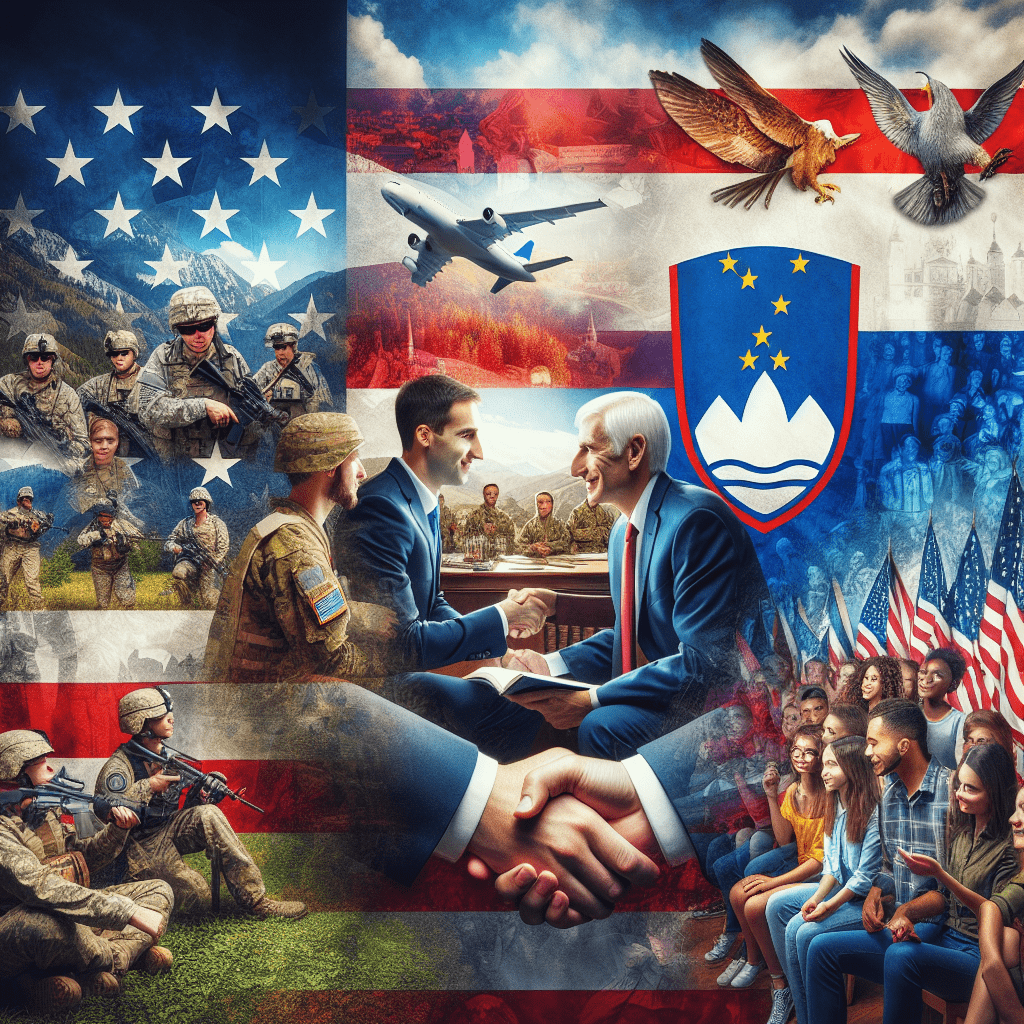# Understanding the Bilateral Relations: U.S.A. vs. Slovenia
The relationship between the United States of America (USA) and Slovenia spans decades, evolving since Slovenia’s independence from Yugoslavia in 1991. This article carefully navigates through various aspects of these bilateral relations, exploring economic, military, cultural exchanges, and more.
Historical Background of U.S.-Slovenia Relations
As Slovenia transitioned out of the Yugoslavian federation and declared its sovereignty, the USA was among the first countries to recognize its independence. This pivotal moment laid a groundwork for solid diplomatic relations which then steadily developed over time.
Diplomatic Relationships and Cooperation
The U.S. maintains an embassy in Ljubljana, and similarly, Slovenia has one in Washington, D.C. The embassies facilitate diplomatic cooperation and address issues relevant to both nations—including, but not limited to, international security and economic development.
Diplomatic ties between the U.S. and Slovenia are characterized by synergies on foreign policy objectives with shared values regarding human rights, democracy, and rule of law. High-level visits by state officials periodically strengthen the alliance and reveal a mutual interest in fostering a stable European continent.
Economic and Trade Relations
The United States and Slovenia enjoy a positive economic relationship, albeit modest compared to dealings with larger EU members. Bilateral trade includes imports and exports of goods such as pharmaceuticals, vehicles, and technological equipment.
Slovenian markets are relatively open to U.S. investments, and several American corporations operate successfully within the country. Similarly, Slovenian companies have found opportunities to do business on American soil. Both parties continue to look out for avenues to expand trade agreements and increase investment mechanisms.
Defense and Military Cooperation
NATO membership binds the US with Slovenia on matters of defense since the latter joined the organization in 2004. Snap military training operations involving both nations showcase collective readiness and interoperability capabilities. These treaties reflect a commitment to collective defense — a cornerstone principle highlighted in Article 5 of the NATO treaty.
Multilateral military exercises conducted in Europe often see participation from both American and Slovenian armed forces, aiming at enhancing technological advancements and tactical preparation amidst global security challenges.
Cultural Exchanges and Education Initiatives
The U.S. and Slovenia also place great value on cultural exchange programs, which encourages shared understanding and networking amongst students, professionals, and academics alike.
Programs like the Fulbright Exchange top the list along with government-sponsored initiatives such as grants offered through USAID aimed at nurturing education in Slovenia while promoting cross-cultural dialogue.
Environmental Collaborations
Climate change has played a pivotal role in aligning the U.S.-Slovenian partnership towards sustainable development goals. Actions have been taken from both sides to tackle environmental issues—shared scientific research providing potential solutions for sustainable policies is undertaken fairly often.
Notes
Image description: A photo montage representing U.S.-Slovenia bilateral relations showing figures of two national flags overlapped with images of an American diplomat meeting a Slovenian counterpart juxtaposed against a backdrop of students in a cultural exchange program and military joint exercise in action.

